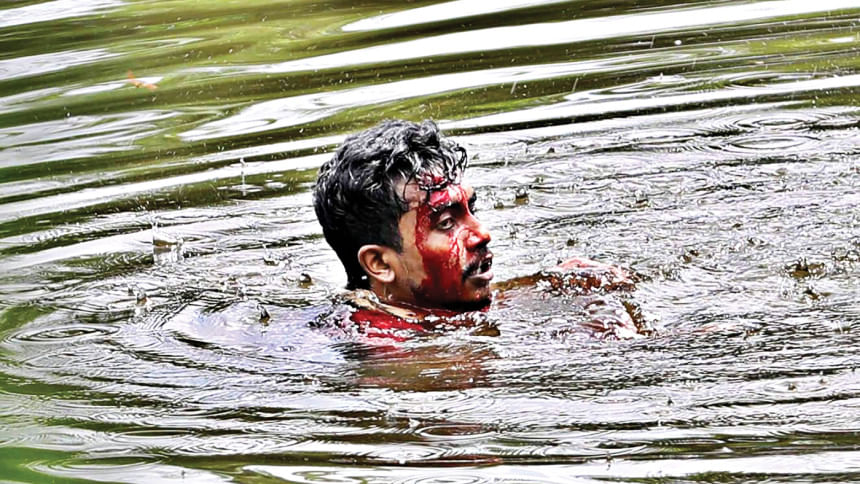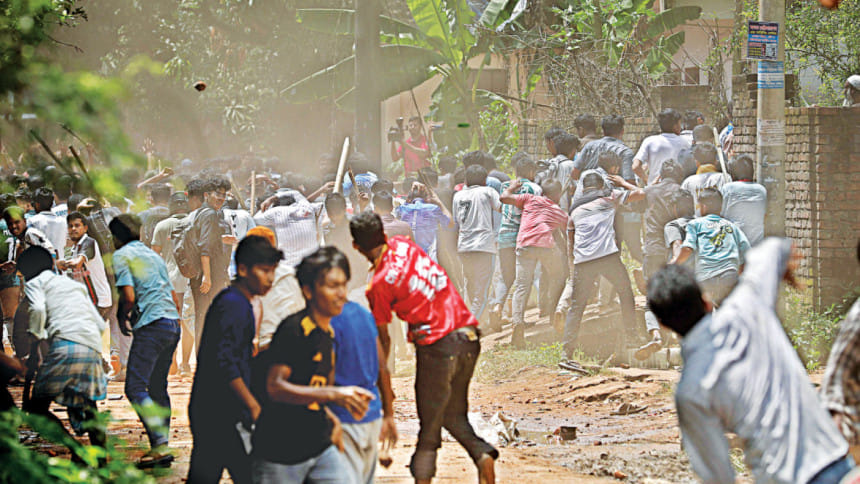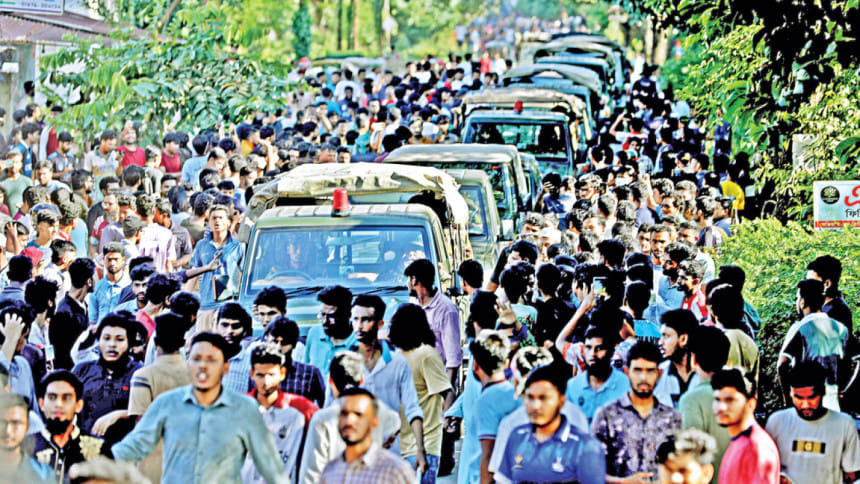At least 10 incidents in 7 years: Why clashes between CU students and locals keep happening

Violent clashes between students of the University of Chittagong (CU) and residents of nearby villages have become a familiar pattern, with at least ten major incidents reported in the last seven years. What often begins as a minor dispute regularly escalates into bloody confrontations, yet the university administration has failed to deliver a lasting solution.
The latest outbreak erupted on August 30 near Gate No. 2 of CU, after a female student was allegedly assaulted by a security guard. Furious students clashed with locals in hours-long violence that stretched into the next morning. The fighting only ended after the army intervened.

According to CU Medical Centre's acting chief medical officer, 421 students received treatment for injuries, with four reported in critical condition. Police later filed a case against 95 people, but fear continues to haunt students living in rented houses near the site of the clashes.
CU has around 27,500 students but only 14 residential halls. The majority are forced to rent accommodation in surrounding villages, depending on locals for housing, transport, and daily supplies. Students allege locals exploit this dependency by inflating rents and demanding excessive fares. Locals, on the other hand, claim students misuse their influence and magnify small disputes into major confrontations.
"This shortage of residential halls has forced students into dependency on locals. This creates fertile ground for conflicts," said Professor Dr. Al Amin, dean of the Faculty of Science and former proctor of CU.

A Cycle of Violence
The August 30, 31 violence is the latest in a long string of campus-adjacent clashes:
August 2025: Two students injured near CU railway station in violence allegedly linked to extortion demands over shop allocation.
October 2024: Police arrested five after a brawl near the CU railway station.
August 2024: Students clashed with locals at Zero Point over shops allegedly set up on railway land.
May 2024: A student was attacked while buying vegetables.
March 2024: A dispute between a CU employee and students escalated into clashes with locals, leaving three injured.
May 2022: A motorcycle-rickshaw collision injured five students. The same month, a CNG driver's demand for extra fare triggered violence near the university rail crossing.
April 2022: An auto-rickshaw driver allegedly assaulted a CU student, sparking clashes when locals intervened.
October 2018: A quarrel between two students spiralled into a bloody fight. The probe report was never published.
Over the years, at least four investigation committees have been formed, but none of their reports have been made public.
Students blame the administration for its failure to act. "Both sides are responsible. After every attack, the administration makes promises but takes no real action. That's why this cycle of violence continues," said Nazmul Hasan Rabi, a CU student.
Another student from the philosophy department added: "Locals have never fully accepted our presence or lifestyle. This psychological distance often turns small issues into clashes."
Locals, however, reject the idea that they are hostile by nature. "Students think we are against them, but that's a misconception. I have cordial ties with many and never faced problems. This time, too, a minor issue escalated into a clash involving both sides," said Mohammad Ali, a local shopkeeper. He urged the administration to carry out a fair investigation.
Teachers and students insist that only stronger coordination between the university administration and local authorities can restore trust, ensure safety, and prevent further violence. Until then, both students and locals remain trapped in a cycle of suspicion, resentment, and bloodshed.

 For all latest news, follow The Daily Star's Google News channel.
For all latest news, follow The Daily Star's Google News channel. 



Comments